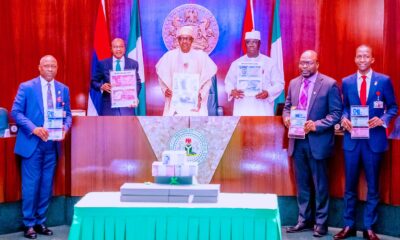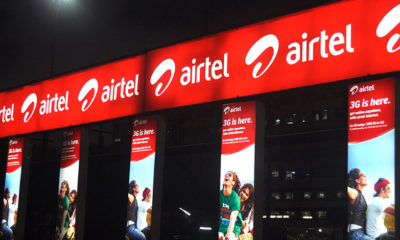Airtel Africa Increased Customer Base by 12 Percent to 116.4m in the First Quarter of 2021
Airtel Africa Plc, one of the leading telecommunications companies in Africa, grew customer base by 12 percent to 116.4 million in the first half of the year that ended September 30, 2020.
In the financial results signed by Simon O’Hara, Group Company Secretary, and released through the Nigerian Stock Exchange on Friday, the telecommunication giant reported a 10.7 percent increase in revenue to $1,815 million with second-quarter growth of 14.3 percent.
Similarly, revenue growth in constant currency was 16.4 percent in the first half of the year but 19.6 percent in the second quarter during the peak of COVID-19 locked down.
The report also showed growth was recorded across all regions with Nigeria rising by 20.2 percent. East Africa followed with 21.9 percent growth while Francophone Africa expanded by 4.4 percent.
Services with voice revenue grew by 7 percent with data and mobile money appreciating by 33.4 percent and 30.4 percent, respectively.
Airtel operating profit increased by 19.5 percent to $472 million, representing an increase of 28.3 percent in constant currency. The company’s free cash flow stood at $319 million, up from $210 million filed in the same period of last year.
Raghunath Mandava, chief executive officer, on the trading update: “The first half of our fiscal year included the peak impact of the COVID-19 pandemic in the countries where we operate, as lockdown measures were swiftly implemented to stem the initial spread of contagion. In these unprecedented times, the telecoms industry has emerged as a key and essential service for these economies, allowing customers to work remotely, reduce their travels, keep them connected and allow access to affordable entertainment. In these exceptional circumstances, in the first half, we delivered a strong set of results and as lockdown restrictions eased during Q2 our performance continued to improve with constant currency revenue growth of 19.6%, up 6.6% from the prior quarter.
“Importantly, the fundamentals of our business remain strong and revenue growth further benefitted from the execution of our strategy with a specific focus on expanding distribution in the rural areas, investing in our network and increasing 4G coverage, as well as benefitting from the fact we provide an essential service to consumers. In Q2, performance in our mobile money business also significantly improved with constant currency revenue growth of 33.9%, up 8% from prior quarter, as lockdown restrictions were eased and fees on certain transactions, which had been previously waived, were largely reintroduced. We also continued to enter new partnerships with leading institutions such as WorldRemit, MoneyGram, Standard Chartered Bank, and Mukuru to increase use cases and improve customers’ access to digital
payments and financial services.
We remain alert to the potential for further disruptionsfrom a second wave of COVID-19 across Africa, and the associated actions of governments to minimise contagion. Nevertheless, we are in a strong financial position to capture the opportunities in a fast-growing region that is vastly underpenetrated in terms of mobile and banking services. We remain confident of delivering long term sustained growth for our shareholders.”
Airtel’s full financial year starts from April of the current year and ends in March of the following year.


 Forex3 weeks ago
Forex3 weeks ago


 Naira2 weeks ago
Naira2 weeks ago
 Billionaire Watch2 weeks ago
Billionaire Watch2 weeks ago




 Naira3 weeks ago
Naira3 weeks ago




 Naira2 weeks ago
Naira2 weeks ago




 Naira1 week ago
Naira1 week ago




 Naira4 weeks ago
Naira4 weeks ago




 Naira4 weeks ago
Naira4 weeks ago















